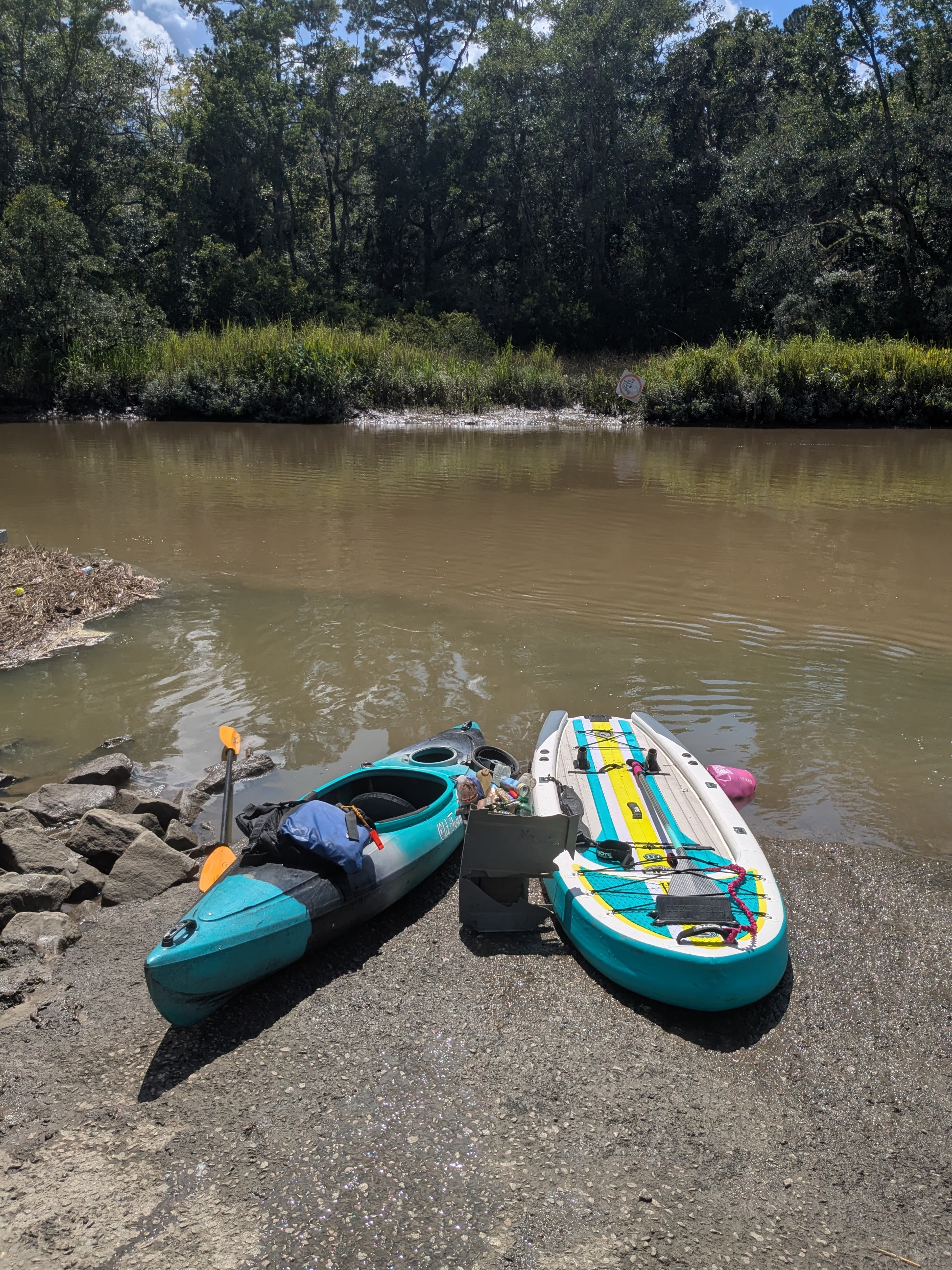- Water Protector 🌊
kyshia james
POINTS TOTAL
- 0 TODAY
- 0 THIS WEEK
- 628 TOTAL
participant impact
-
UP TO30low-plastic mealsconsumed
-
UP TO58plastic itemsavoided
-
UP TO1.0low-plastic businesssupported
-
UP TO1.0community eventhosted or attended
-
UP TO104minutesspent learning
kyshia's actions
First Steps: Start with You
Understand Plastic’s Impact on My Health
Plastics can leach harmful chemicals into food, water, and the air we breathe. I will spend 30 minutes learning about the health impacts of plastic exposure and explore safer swaps — like choosing glass or stainless steel over plastic for food storage and drinking water.
First Steps: Start with You
Learn how plastic is made
Understanding the origins of plastic helps us see its environmental impact more clearly. I will spend 30 minutes learning how plastic is made — from fossil fuels to finished product — and reflect on how that knowledge influences my choices.
First Steps: Start with You
Try one low-plastic meal
From plastic-wrapped produce to takeout containers, food is one of the biggest sources of single-use plastic. I will enjoy one meal using ingredients and tools that minimize plastic packaging — opting for items in aluminum, paper, steel cans, or glass jars instead of plastic. I’ll also use a water refill station instead of single-use bottles to keep the meal as plastic-free as possible.
First Steps: Start with You
Track my plastic use for a day or a week
Awareness is the first step toward change. I’ll track how much plastic I use in a day (or week), paying attention to packaging, food containers, and single-use items. I’ll reflect on what surprised me most and what I could do differently.
First Steps: Start with You
Choose secondhand or a recycled product for my next purchase
Buying recycled or secondhand products helps close the loop and reduces demand for new plastic. I will look for and purchase a product made from recycled materials or choose a secondhand option the next time I shop to keep valuable resources in use longer.
First Steps: Start with You
Support businesses with plastic-free or refillable options
Where we spend our money shapes the market. I will support a business that offers plastic-free, low-waste, or refillable products or services.
Lead the Way: Shape Your Community
Host a “bring your own container” lunch or event
Gatherings are a great time to model new habits. I will plan or participate in a lunch or event where people bring their own containers, utensils, or cups to reduce single-use plastic.
First Steps: Start with You
Swap one product for a refillable or plastic-free option
Even small swaps can add up to big impact. I will replace one product I use regularly — like soap, cleaning spray, or snacks — with a refillable or plastic-free version.
First Steps: Start with You
Design my grocery routine for less plastic
Our grocery habits are one of the biggest sources of single-use plastic, from packaging on produce to plastic bags and containers. I will spend 17 minutes researching low-plastic shopping strategies and make a list of things to look for or do differently the next time I go to the store.
First Steps: Start with You
Discover the difference between bioplastics, compostable plastics, and recyclable plastics
Not all “eco-friendly” plastics are created equal. I will spend 30 minutes exploring the differences between bioplastics, compostable plastics, and recyclable plastics—and what happens to each at the end of its life.
Share My Why
Share My Why
I will share my Ecochallenge story and why I'm taking action for the planet — and earn 15 points!
Share My Why
Take the Beyond Plastic Ecochallenge Feedback Survey
I will take a short survey about my experience to help the Ecochallenge team improve future events, earn a chance to win a prize, and earn 15 points!
Participant Feed
-
 kyshia james 7/30/2025 8:12 AM
kyshia james 7/30/2025 8:12 AM- Water Protector 🌊
If our entire team checks in today that is 25 points each which is an easy 2,300 points!! woot woot!! -
REFLECTION QUESTION
 First Steps: Start with YouWhat patterns did you notice in your plastic use — and what would it take to shift one of them?
First Steps: Start with YouWhat patterns did you notice in your plastic use — and what would it take to shift one of them?
 kyshia james 7/30/2025 7:48 AMI noticed plastic straws are given out in abundance! I have purchased a package of reusable silicone straws to keep in my bag when I'm out.
kyshia james 7/30/2025 7:48 AMI noticed plastic straws are given out in abundance! I have purchased a package of reusable silicone straws to keep in my bag when I'm out. -
 kyshia james 7/28/2025 8:11 AM
kyshia james 7/28/2025 8:11 AM- Water Protector 🌊
Happy Monday!! Let's all do the survey! -
 kyshia james 7/23/2025 7:04 AM
kyshia james 7/23/2025 7:04 AM- Water Protector 🌊
Myth #1: If something has the recycling symbol (♻️) on it, it’s recyclable.
Truth: The recycling symbol basically means…nothing at all. -
 kyshia james 7/17/2025 1:53 PM
kyshia james 7/17/2025 1:53 PM- Water Protector 🌊
Welcome Jacky to the ecochallenge! -
 kyshia james 7/16/2025 1:29 PM
kyshia james 7/16/2025 1:29 PM- Water Protector 🌊
-
 kyshia james 7/22/2025 5:34 AM
kyshia james 7/22/2025 5:34 AM- Water Protector 🌊
-
 Sara McDonald 7/17/2025 2:13 PMGreat job, guys! ! Y'all are amazing! Were you able to log it into the Litter Journal, too?
Sara McDonald 7/17/2025 2:13 PMGreat job, guys! ! Y'all are amazing! Were you able to log it into the Litter Journal, too?
